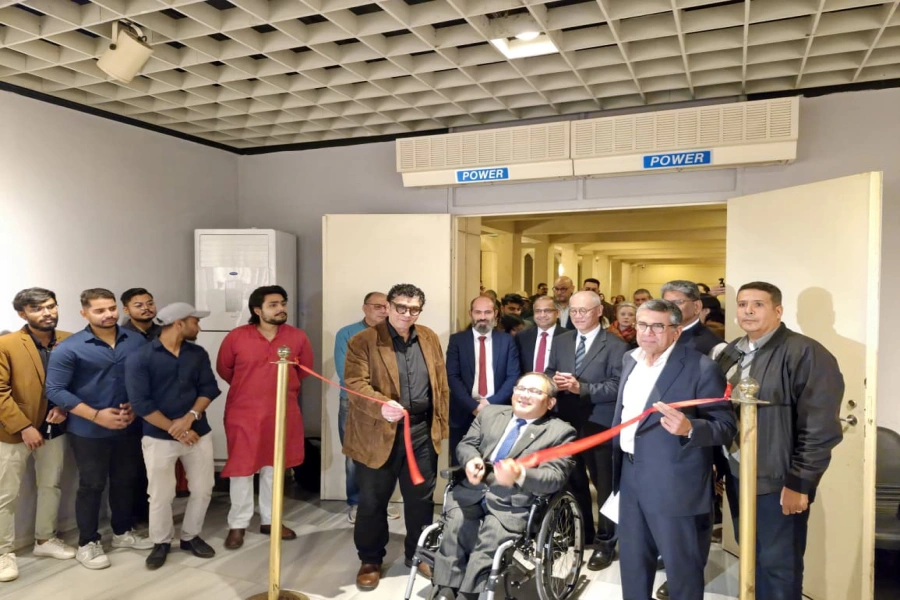Despite having experienced the hardships of labor migration, why is Mina still choosing to leave?
The governance of migration plays an integral role in shaping our reality. The Department of Foreign Employment (DoFE) reported that 418,713 labor permits were issued in the fiscal 2015/16, which of course does not account for labor movement through irregular channels. While mobility is a right and migration should be a choice, many Nepalis are compelled into leaving the country in search of better opportunities abroad. Mina Gurung*, of Morang, is one such migrant worker who left Nepal in search of a better life.
Recruitment agencies or agents play a vital role in facilitating labor migration. It was one such unscrupulous agent who promised Mina a well-paying job in Saudi Arabia. But reality struck hard when she found herself working in an abusive environment that did not pay as much as she had been promised. Unwilling to bear this, Mina decided to come back to Nepal. However, without a means of earning her living, she was compelled to choose to go to Kuwait again, hoping that things would be different this time. The second time also her employment conditions were not satisfactory—so much so that for over a year she was not even allowed to call home—she decided to come back to Nepal again.
Mina’s story represents the plight of many Nepalis who are trapped into vulnerable and exploitative work conditions. Fraudulent companies and agents capitalize on naiveté, poverty and illiteracy to generate profit. In fact, according to the DoFE, in the 2015/16 fiscal alone, 704 cases have been filed against individuals and 1,468 against recruitment companies. The International Labour Organization (ILO) defines forced labor as situations in which people are coerced into working through the use of violence or intimidation, or through more subtle means such as accumulated debt, withholding of wages, retention of identity papers or threats of denunciation to immigration authorities. It further estimates that almost 21 million people are victims of forced labor, and migrant workers are particularly vulnerable.
While it is sad that most Nepalis feel the need to leave the country for employment, lack of implementation of regulations for migrant workers makes their situation worse. After an arduous journey in search of a better life took Mina to Saudi Arabia, she felt the need to go to Kuwait to support her family, and has now left yet again for Kuwait. Despite having experienced the hardships of labor migration, and repeatedly at that, why is Mina still choosing to leave, as are other Nepali labor migrants?
The way out
It is imperative that we first understand and then address why so many migrant workers choose to leave Nepal despite harsh working conditions abroad. Far too often, labor migrants leave because of lack of opportunities in Nepal. Many labor migrants seem to agree they would have preferred to stay had there been suitable and well-paying jobs back home. In fact, when she returned from Kuwait for the first time, Mina had set up a small business of her own, hoping to earn a living in Nepal. However, when the business did not generate profits, she sold it so that she could afford to go to Kuwait for the second time as a labor migrant, just so she could earn enough for her family. Therefore, one possible way out may be to create and foster an environment for decent work in Nepal, such that migration is not the only option people have.
Second, migrant workers need to be made aware of the realities of the nature of the job they will be in—the trainings they receive need to be country and sector specific so that their learning is meaningful. For this, recruitment agencies need to be made aware that they are not operating in an environment of impunity. To complement this, the government needs to scale up its institutional capacity, resources and political will to formalize labor migration through bilateral and regional understandings with more destination countries.
Although the matter is more nuanced than this, a positive right step would be to create opportunities in the country so that migration can be a choice for everyone. With the availability of choices in Nepal, a parent may not be compelled to leave their child, a spouse compelled to leave their better-half, and any Nepali compelled to leave their country. Moreover, a well regulated labor market that ensures the rights of every migrant worker may enable people like Mina to work anywhere in this world, with complete freedom and dignity.
Nepali team compelled to play in Bahrain following deterioratio...

The author holds an MSc from the University of Oxford
basnyat.ayushma@gmail.com
*The name in the article has been changed.



-1200x560-1771928761.webp)




































